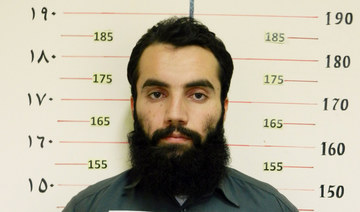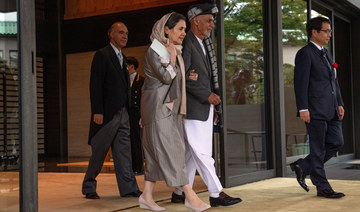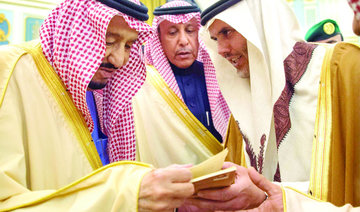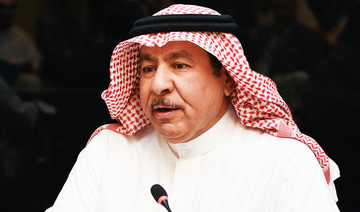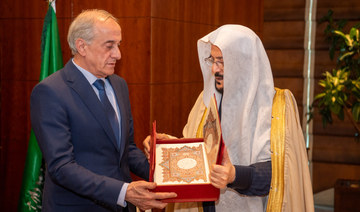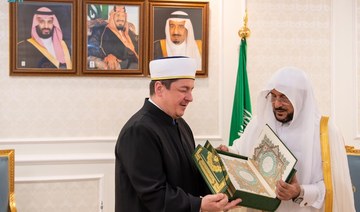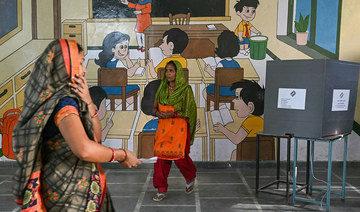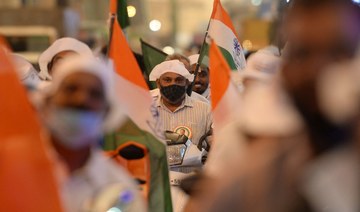ISLAMABAD: Three Taliban prisoners who were to be freed in exchange for an American and an Australian national, both kidnapped in 2016, are still in custody in Bagram prison, north of the capital Kabul, Taliban spokesman Zabihullah Mujahid said Friday.
The three Taliban prisoners did not show up at an exchange site that had been agreed upon with the US, though Afghan President Ashraf Ghani said they would be freed.
Mujahid had no explanation for the no-show.
The three Taliban prisoners included Anas Haqqani, the younger brother of the Taliban’s deputy chief Sirajuddin Haqqani, who leads the fearsome Haqqani militant network. They were to be exchanged for American University of Afghanistan professors, American Kevin King and Australian Timothy Weeks.
Mujahid said the professors are still in Taliban custody.
In a televised address to the nation on Wednesday, Ghani said the “conditional release” was a very hard decision to make.
Prisoner releases were a key point during peace talks between the US and Taliban last year. US President Donald Trump abruptly ended the talks in September, following a spate of violent attacks in Kabul that killed more than a dozen people, including a US soldier.
The prisoner exchange was seen as a possible door to restarting the talks. US peace envoy Zalmay Khalilzad has crisscrossed the region in recent weeks meeting with Washington’s NATO allies, as well as Russia, China, Pakistan and Afghanistan.
President Ghani has repeatedly demanded his government be included in talks with the Taliban, who have refused saying the Afghan government is an American puppet.
Ghani is now in the middle of a controversial contest for his job as president following Afghanistan’s Sept. 28 elections, which drew allegations of widespread misconduct and fraud.
Preliminary results were supposed to be released on Thursday, but have once again been postponed.
Ghani had hoped a big win in the presidential polls would solidify his political position, but the recount of ballots has been challenged by his main rival, Abdullah Abdullah, who shares power in Afghanistan’s coalition government.
That government was cobbled together after the 2014 presidential elections, which were so deeply overwhelmed by allegations of fraud that the United States stepped in to broker a power sharing agreement between Abdullah and Ghani.
Taliban say prisoner swap promised by Kabul fails to happen
Taliban say prisoner swap promised by Kabul fails to happen
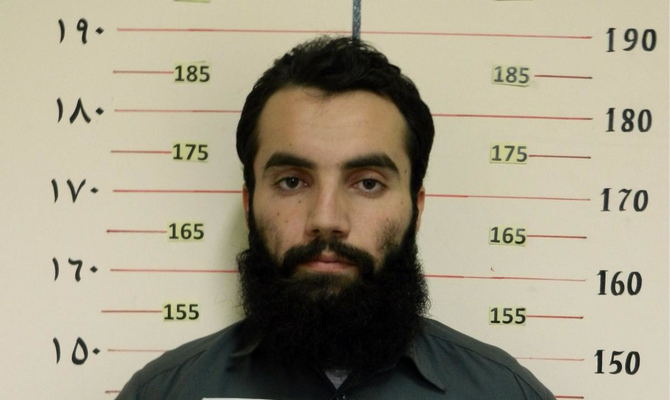
- The three Taliban prisoners included Anas Haqqani, the younger brother of the Taliban’s deputy chief Sirajuddin Haqqani, who leads the fearsome Haqqani militant network
- They were to be exchanged for American University of Afghanistan professors, American Kevin King and Australian Timothy Weeks
Cultural Communication Center holds human communication diwaniya
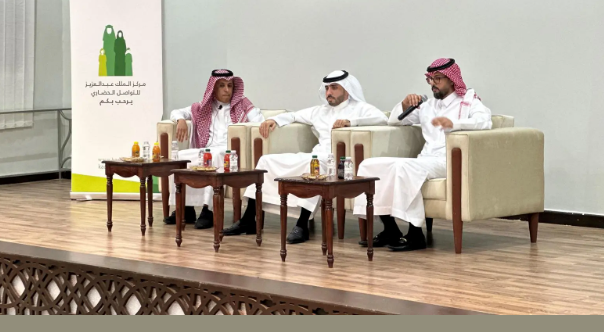
- The diwaniya tackled three themes
SAKAKA: The King Abdulaziz Center for Cultural Communication in cooperation with Al-Jouf Youth Association, held the Cultural Communication Diwaniya “Basic Pillars for Human Communication in the Kingdom” in Sakaka on Thursday.
The diwaniya tackled three themes: the ethics of human communication; the dimensions of human communication according to Vision 2030; and human communication according to international law.
Abdulaziz bin Abdulwahad Al-Hamwan, the center’s supervisor in Al-Jouf, said the goals of diwaniya were to “enhance national and human communication, consolidate the values of national cohesion, and spread the culture of human communication skills among beneficiaries.”
Global logistics giant shows interest in developing Pakistan’s first green transshipment terminal
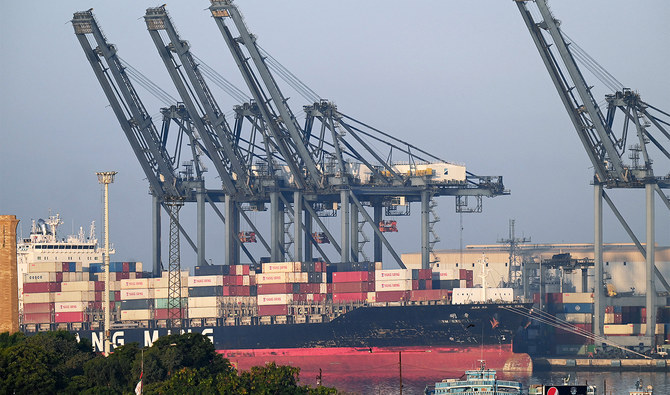
- APM Terminals sent a delegation to meet Pakistani officials and discuss the modernization of its ports
- The integrated container logistics company also develops and operates ports in countries across the world
ISLAMABAD: A delegation from a leading logistics company, A.P. Moller-Maersk (APM) Terminals, expressed interest in developing the first transshipment terminal in Pakistan while holding a meeting with Prime Minister Shehbaz Sharif on Friday.
Maersk is an integrated container logistics company operating in 130 countries. APM Terminals has been developing and operating advanced ports and container terminals for over half a century and has 60 strategically located ports and container terminals around the globe and several more in development.
The company delegation arrived in Pakistan earlier this week to discuss the possibility of developing and modernizing the South Asian nation’s ports and held separate meetings with Finance Minister Muhammad Aurangzeb and Minister for Maritime Affairs Qaiser Ahmed Sheikh.
“The prime minister expressed interest in cooperation between Pakistan and Denmark in the fields of agriculture and environment-friendly energy projects,” Radio Pakistan reported after Sharif’s meeting with the delegation led by the company CEO Keith Svendsen.
“Svendsen expressed satisfaction on the investment and business friendly policies of Pakistan,” it added. “He showed interest in the first green transshipment terminal of Pakistan in Karachi.”
The construction of the project would allow large cargo ships to utilize the Karachi port, helping the country earn greater revenue.
Previously, the country’s finance minister told the delegation Pakistan was keen to explore future projects and investments with APM, especially in the maritime sector.
“The government is fully committed to facilitate an environment conducive to business and investments,” he told them.
Svendsen and his delegation also met the maritime affairs minister on Thursday and discussed investment prospects in Pakistan’s ports and terminals sector.
“The delegation head highlighted Moller-Maersk’s prominent global position and its robust relationship with Pakistan, which reflects a market share of approximately 20 percent in containerized import-export activities,” Radio Pakistan said.
“Recognizing the immense growth potential, Keith Svendsen proposed investments to enhance integrated supply chain solutions, including the upgrading of ports and logistics infrastructure. The delegation pledged support for the advancement of maritime affairs in Pakistan and for nurturing a skilled workforce in this sector.”
On Monday, Pakistani and United Arab Emirates (UAE) officials performed the groundbreaking of a $175 million Bulk and General Cargo terminal as part of a new 25-year concession agreement signed between AD Ports Group and Karachi Port Trust (KPT) in Feb. 2024 to outsource operations of the terminal.
Under the terms of the agreement, Karachi Gateway Terminal Multipurpose Limited (KGTML), a joint venture between AD Ports Group, as a majority shareholder, and Kaheel Terminals, a UAE-based company, will develop, operate and manage the Bulk and General Cargo Terminal, berths 11 to 17 at Karachi Port’s East Wharf.
Minister of Islamic affairs holds meeting to discuss this year’s Hajj season
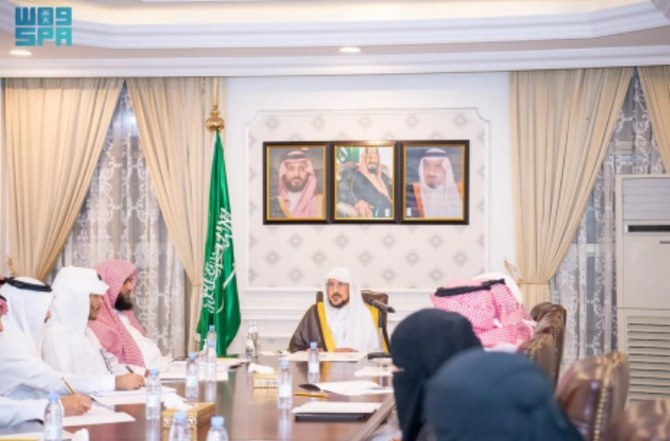
- Focus on various volunteering opportunities
RIYADH: Saudi Minister of Islamic Affairs, Dawah and Guidance Sheikh Abdullatif Al-Asheikh held a meeting in Jeddah on Thursday to discuss the ministry’s activities and projects during this year’s Hajj season.
The meeting was held in the presence of the ministry’s undersecretaries, the directors general of the ministry’s branch in the Makkah region, and the secretary-general for Islamic awareness in Hajj, Umrah and visitation, as well as several other officials.
The minister focused on the most prominent ongoing projects, and progress in the preparation of the ministry’s facilities and services, including the mosques at the holy sites, the central area in Makkah, and activities provided by the ministry.
He looked at the importance of volunteering opportunities during this year’s Hajj season, and following up on special projects at the mosques and holy sites that serve pilgrims during this year’s Hajj.
Saudi Film ‘Hajjan’ wins 6 nominations at Critics Awards for Arab Films
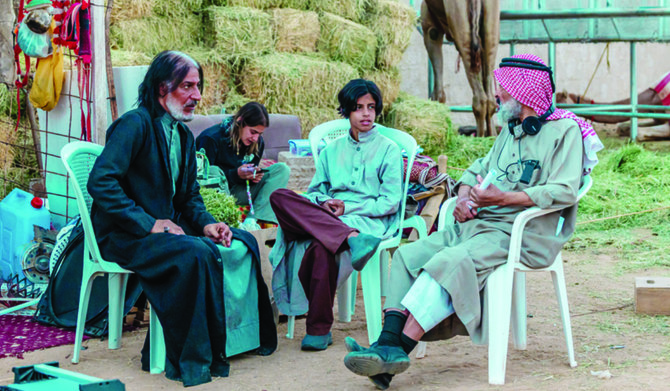
DUBAI: Saudi Arabia-based film “Hajjan,” directed by Egyptian filmmaker Abu Bakr Shawky, is nominated for six categories at the eighth Critics Awards for Arab Films.
The movie is competing in the best feature film, best screenplay, best actor, best music, best cinematography and best editing categories.
“Hajjan” tells the story of Matar, a boy who embarks on a journey across the desert with his camel, Hofira.
The movie is a co-production between the Kingdom’s King Abdulaziz Center for World Culture, or Ithra, and Egyptian producer Mohamed Hefzy’s Film Clinic.
The movie, which is written by Omar Shama from Egypt and the Kingdom’s Mufarrij Almajfel, stars Saudi actors Abdulmohsen Al-Nemer, Ibrahim Al-Hsawi, among others.
The awards ceremony, scheduled for May 18 on the sidelines of the Cannes Film Festival, is organized by the Arab Cinema Center in Cairo and assessed by a panel of 209 critics representing 72 countries.
Sudanese director Mohamed Kordofani’s inaugural feature film, “Goodbye Julia,” and Tunisian filmmaker Kaouther Ben Hania’s Oscar-nominated documentary, “Four Daughters,” scored nominations in seven categories.
Jordanian filmmaker Amjad Al-Rasheed’s “Inshallah A Boy” and Palestinian-British director Farah Nabulsi’s “The Teacher” have six nominations.
India’s mammoth election heats up in trend-defining second phase
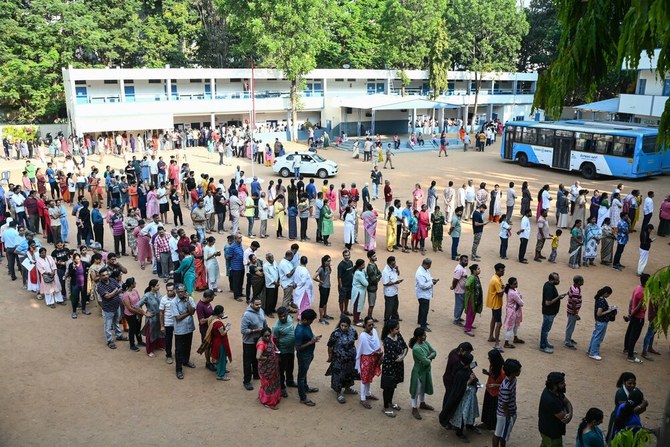
- Second phase is seen by analysts as defining dynamics of rest of the polls
- Turnout in first phase was lower than expected — 66 percent, compared with 70 percent in 2019
NEW DELHI: India’s mammoth general election rolled on Friday into its second phase, which is widely believed to likely set the trend for the rest of the polls.
More than 968 million voters were registered to cast the ballot vote in the world’s most populous country, where incumbent Prime Minister Narendra Modi and his Hindu nationalist Bharatiya Janata Party are eyeing a rare third straight five-year term in power.
The first phase of the vote was on April 19 as polling takes place over six weeks, with results expected on June 4. The other voting dates will be May 7, May 13, May 20, May 25 and June 1.
India has a total of 28 states and eight federally governed territories. Some regions complete the process on a single day, and others spread it out over several phases.
Voting last week took place in 21 states and union territories, with nearly 169 million people eligible to cast their ballots. In the second phase, more than 160 million people were expected to vote across 13 states and federal territories.
As many as 1,202 candidates contested the polls on Friday, vying for 88 of the 543 seats in the lower house of Parliament. In the previous phase, 102 seats were up for grabs.
More than half of the 88 seats were in the southern states of Kerala and Karnataka and the northwestern state of Rajasthan.
The party or coalition that wins at least 272 seats will form the government.
Modi, who ahead of the election was targeting 400 seats for his BJP-led National Democratic Alliance, is challenged by an alliance of two dozen opposition parties — the Indian National Developmental Inclusive Alliance, or INDIA, led by the Congress party, which has ruled the country for close to 45 years since independence in 1947.
‘MINI-GENERAL ELECTION’
The second phase of India’s polls is seen by analysts as defining the dynamics of the remaining five phases. One of the factors was the voter turnout, which in this election might be lower.
In the first phase, 66 percent of those eligible to vote cast their ballot — compared with 70 percent in 2019.
“From the first phase of the election, the message went that there is a silent undercurrent against the BJP and the dip in the voting percentage sent the signal that the BJP would slip in its strongholds in northern India particularly Uttar Pradesh,” Umakant Lakhera, political commentator in Delhi, told Arab News.
“If the trend of voters’ perceived apathy toward the election in general — and the BJP in particular — continues, then it’s an opportunity for the opposition Congress party to consolidate and mobilize its resources to widen its reach and capitalize on anti BJP sentiment.”
The key leader of the opposition coalition and Congress member is Rahul Gandhi, the son of Rajiv Gandhi, a grandson of Indira Gandhi, and a great-grandson of Jawaharlal Nehru, all of whom served as prime ministers of India.
Gandhi is seeking re-election from Wayanad in Kerala — the only major state that has never elected a BJP member of parliament, and where it was not a main competitor. This year, Modi’s party has been trying to make inroads into the state’s political scene.
The main contenders, besides Gandhi, are Annie Raja of the Communist Party of India and BJP’s K. Surendran.
“Kerala always has witnessed bipolar politics, but the BJP has been trying this time to make it a triangular contest, and this election will test whether a third force can find space in Kerala or not,” Prof. G. Gopa Kumar, political scientist and adviser to the Kerala-based Center for Public Policy Research, told Arab News.
“The second phase will test whether the stigma of the BJP of being an outsider in Kerala will continue or not, whether the stigma of not winning a seat in Kerala will continue or not.”
Far from Kerala, in the north, where several states were also going to the polls, another test was taking place at the same time — for the Congress party. Congress plunged to a historic low when it was swept out of power by the BJP in the 2014 general vote, and won its second-lowest number of 52 seats in 2019.
“The second phase is a mini-general election. What is at stake is whether the Congress is going to challenge the dominance of the BJP in the north Indian states like Uttar Pradesh, Rajasthan, Madhya Pradesh or not,” Kumar said.
“The contest is getting serious from now on. For the Congress, it is a survival question as they have to prove that they can defeat the BJP and survive as a big force.”
Although surveys suggest Modi will easily win a comfortable majority in parliament, his 400-seat target, often repeated ahead of the polls, has not been cited since last week’s first phase.
Asad Rizvi, an analyst based in Lucknow, the capital of India’s most populous state and BJP stronghold, Uttar Pradesh, said that the performance was apparently not as good as expected, despite the repetition of the party’s tactics of polarization along religious lines.
“A perception has come to dominate after the first phase of elections that the BJP has not performed well in its strongholds in Uttar Pradesh, therefore, the BJP will have a tough time mobilizing its core voters to retain the seats,” he told Arab News.
“The second phase is also crucial that will test whether the BJP’s communal agenda is working or not.”



